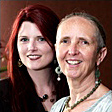The American Public Health Association (APHA) held its 138th annual meeting in Denver Colo., from Nov. 6 - 10 that included a summit on healthcare reform. The theme of this year's meeting was "Social Justice: A Public Health Imperative." A total of 12,000 delegates from throughout the United States attended the gathering and were treated to presentations on all aspects of public health, including acupuncture and other forms of complementary and integrative care.
Cornel West, PhD, a dedicated civil rights activist and philosopher, spoke to the heart of public health and encouraged delegates to not become "adjusted to injustice." West described the "blues" mentality of public health workers, saying that "blues music forces us to confront catastrophe, but doesn't allow catastrophe to have the last word."
APHA includes the myriad of public health issues - environmental concerns, maternal and child health, epidemiology, public health nurses and workers, as well as health educators and policymakers. Complementary and integrative healthcare is included in the fabric of public health and is represented by a group specializing in this area called the Alternative and Complementary Health Practices (ACHP) group. Members of this group include acupuncturists, researchers, academics, students, bodyworkers, practitioners of yoga, Tai Chi, and public policy analysts and advocates. More information can be accessed about the work of this group through the following website: www.apha.org.
Broad topic areas included the use of complementary or integrative approaches in the following areas: cancer and chronic disease, special populations (based on ethnicity, age), professional education and practice and quality assurance.
Of particular interest to the community of acupuncturists and other practitioners of Asian or traditional Chinese medicine were oral and poster presentations on a number of aspects related to our practice. Representing a rich diversity of evaluation and research, presentations reflected the spectrum of possibility encompassing acupuncture research and included results from randomized clinical trials, observational assessments, literature reviews, reports on removing barriers to care and improving access to treatment, and cost-effectiveness analyses. Being exposed to such an assortment of presentations reminds us about the heterogeneity of approaches to research, and that by limiting our scope to randomized clinical trials, we reduce and inhibit our potential for learning about the real-world effects of acupuncture. All of the following abstracts can be found at apha.confex.com.
Two presentations focused on promoting access to care through approaches such as Working Class Acupuncture or other community-based programs. Maria Chao, Dr. PH of the Osher Center for Integrative Medicine in San Francisco used survey data from the 2007 National Health Interview Study to examine socio-demographic characteristics of acupuncture users and compared these with data from Working Class Acupuncture in Portland, Ore. She concluded that preliminary data indicate that local community acupuncture clinics improve access to care by making treatment affordable but that racial and ethnic barriers remain a challenge. Kimberly Tippens, ND, MSAOM of the Helfgott Research Institute at the National College of Natural Medicine reported on a survey of 500 adult clients at two community acupuncture clinics in Portland, Ore. These surveys collected data on a variety of demographics, health behaviors and utilization of services. The primary reason clients chose these clinics was the availability of accessible, low-cost treatment.
Other models of promoting access to care to medically under-served communities were presented by a number of speakers. Carla Wilson, MA, LAc, DAOM (candidate) of Quan Yin Healing Arts Center in San Francisco discussed a pilot project conducted in collaboration with five residential housing centers. Offering acupuncture, massage, and health education were feasible in these settings and these services were highly utilized.
Amy Tilley, PsyD, of La Frontera Center in Tucson Ariz., described the work of the ADMIRE Plus Program, a nationally recognized intensive outpatient treatment programs for individuals with mental health and substance use issues. Using a harm reduction philosophy, the program integrates motivational counseling and support with acupuncture. Other models of integrated approaches were described by Gerald Stevens, DC, MS, MPH (A multidisciplinary approach to addressing rural health disparities via the formation of Integrative Health and Wellness Network of the Finger Lakes in N.Y.) and Barbara Gottlieb, MD, MPH (Mind and Body/ Mente y Cuerpo) - an effective model for integration of mental health and primary care of Latinas in community health centers).
Using results from the Natural History of Rheumatic Disease in Minority Communities study, Kimberly Middleton, BSN, MPH, found that acupuncture was used more in this population than in the general U.S. adult population.
Eric Hsiao, PhD of the College of Acupuncture and Oriental Medicine in Whittier, Calif., conducted a literature review of the effectiveness and safety of TCM for treating individuals with diabetic neuropathy. Based on this work, he concluded that TCM may be beneficial to patients and that an integrated approach seems to be more effective than conventional medicine alone; however, more evidence is needed in order to support clinical efficacy.
Two presentations on clinical trials were also included in the workshops. Silvarama Prasad Vinjamury, MD, of the College of Acupuncture and Oriental Medicine discussed challenges of recruiting participants for a study of acupuncture and fibromyalgia. Bei-Hung Chang, ScD, of Boston University School of Public Health reported on the results of trial examining the combination of acupuncture and relaxation for treating digestive side effects associated with HIV medications. Her study indicated that potential synergistic effects of the two approaches may result in more effective management of symptoms such as diarrhea/loose stools and nausea.
This year's annual meeting offered significant opportunities for ongoing professional education, networking and inspiration. Reflecting on the theme of social justice, Cornel West offered the most fitting summary: "Justice is what love looks like."
Click here for previous articles by Elizabeth Sommers, PhD, MPH, LAc.
Click here for more information about Kristen E. Porter, PhD, MS, MAc, LAc.




